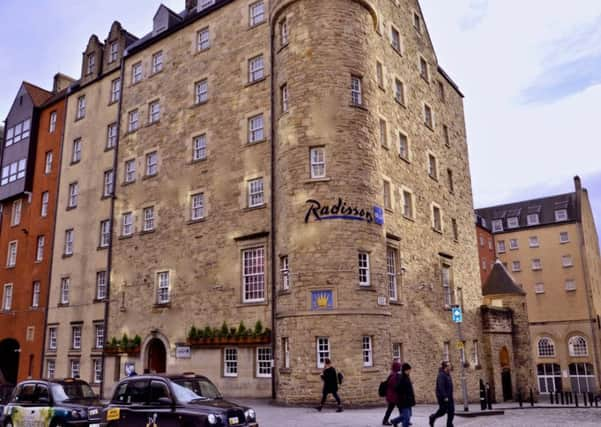Tourist tax could cost Edinburgh economy £45m, warn hotels


A joint letter from a number of hotels and hospitality associations claims the city council’s plans for a tax on bed nights in paid-for accommodation would be “hugely damaging” to the hospitality and tourism sector.
But the council leadership insisted independent research had found a tourist tax would not deter visitors from coming to the Capital and called on the critics to produce evidence to back up their claims.
Advertisement
Hide AdAdvertisement
Hide AdThe Scottish Government must agree to hand councils the power to introduce such a levy before Edinburgh can go ahead with its plans. A national consultation is under way on the idea.
Edinburgh Chamber of Commerce claimed last month that 69 per cent of businesses in the city backed the tax, although it said the hospitality and tourism industry were split 50-50.
But the Federation of Small Businesses said its members in the city were 76 per cent against it.
Now an open letter to the council from organisations including Radisson Hotels, Best Western Hotels, UKHospitality, the Scottish Licensed Trade Association, the Scottish Bed and Breakfast Association, and the Association of Scotland’s Self-Caterers has also argued flatly against a tax.
Advertisement
Hide AdAdvertisement
Hide Ad“Such a measure would be hugely damaging to the tourism and hospitality sector and undo much of the positive work that the council has done to promote the city as a thriving tourist destination,” the group wrote.
“We live in a global, price-sensitive economy and any imposition of a tourist tax on consumers will inevitably lead to fewer visitors and lower spending, affecting jobs and investment.
“The tax proposed in Edinburgh will cost that city’s economy £45m-£175m if implemented across Scotland.
“As we continue to navigate Brexit, now is not the time to be pushing Scotland further out of reach.”
Advertisement
Hide AdAdvertisement
Hide AdThe council has proposed a levy of two per cent of the room cost or £2 per room per night, which it says would raise around £11m a year.
Surveys of visitors to the city, conducted at the height of summer and in the quieter month of October, found 88 per cent of peak period tourists and 80 per cent of off-peak visitors said they would still come to Edinburgh if such a charge were introduced.
And 59 per cent of residents surveyed backed a tourist tax.
City council leader Adam McVey said it was “fair that tourists, along with residents, contribute to the continuing success of this city”.
And deputy leader Cammy Day said he was yet to be convinced a tax would adversely impact the city’s economy.
Advertisement
Hide AdAdvertisement
Hide AdHe said: “We have the research about both peak and off-peak tourists which shows it would not impact tourist choices – a tourist tax would not stop them choosing to make Edinburgh their destination.
“No doubt this kind of scare-mongering will have been seen in other countries throughout Europe when they decided to introduce a tourist tax.
“I would like to see the evidence that it has done any harm to these cities’ economies.”
He said he and Cllr McVey had met tourism and hospitality businesses as part of their consultation. “We have done what the government asked us to do – we have engaged with the industry,” he said.
Advertisement
Hide AdAdvertisement
Hide AdHe urged opponents to respond to the consultation. “They can tell us what they think are the adverse effects of a tourist tax, but they need to give us the evidence. Otherwise it’s just figures being thrown in the air and used to try to scare people.”
Cllr Day said hotels which had signed the letter would also be operating in other European countries where a tourist tax was in place. “They are happy to work with it there, why not here?
“I accept not everyone is going to be supportive of this, but if it can raise much-needed income and boost our infrastructure in the city then we should be doing it.”